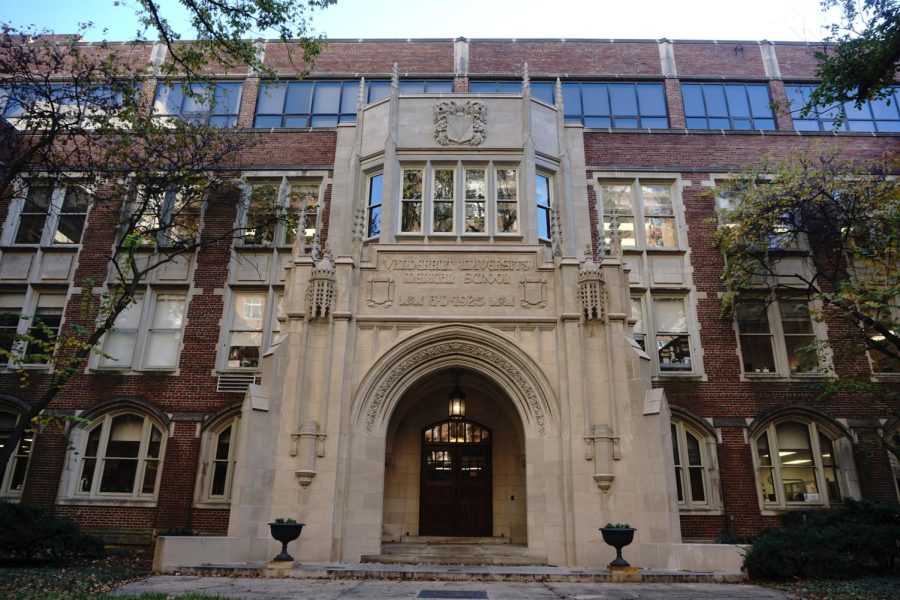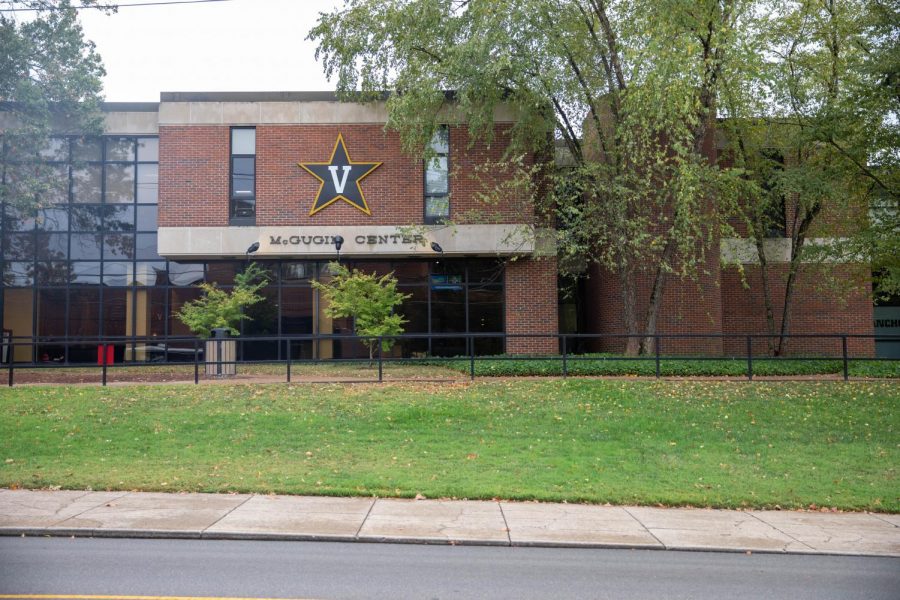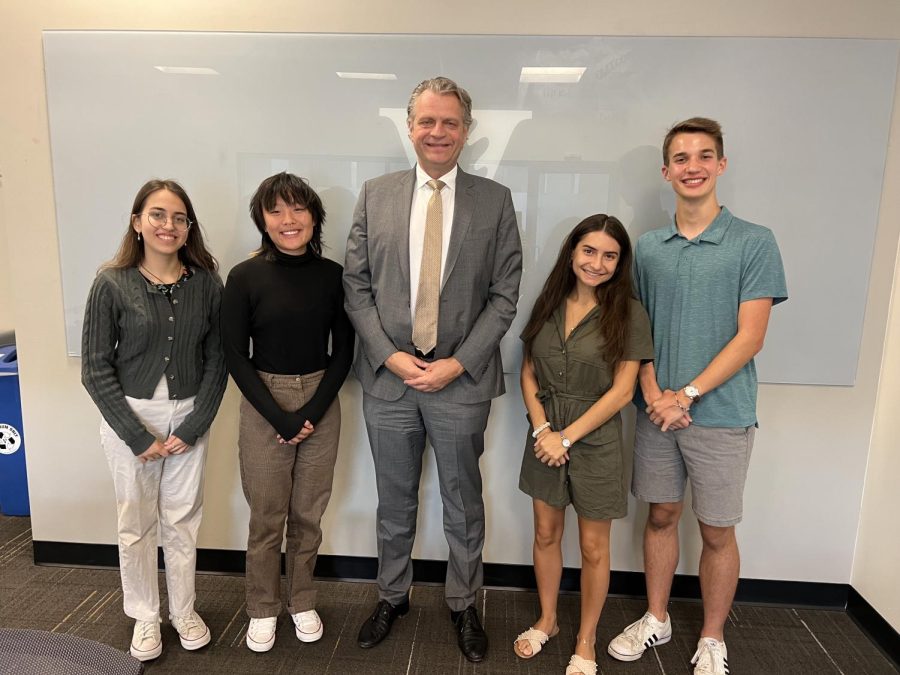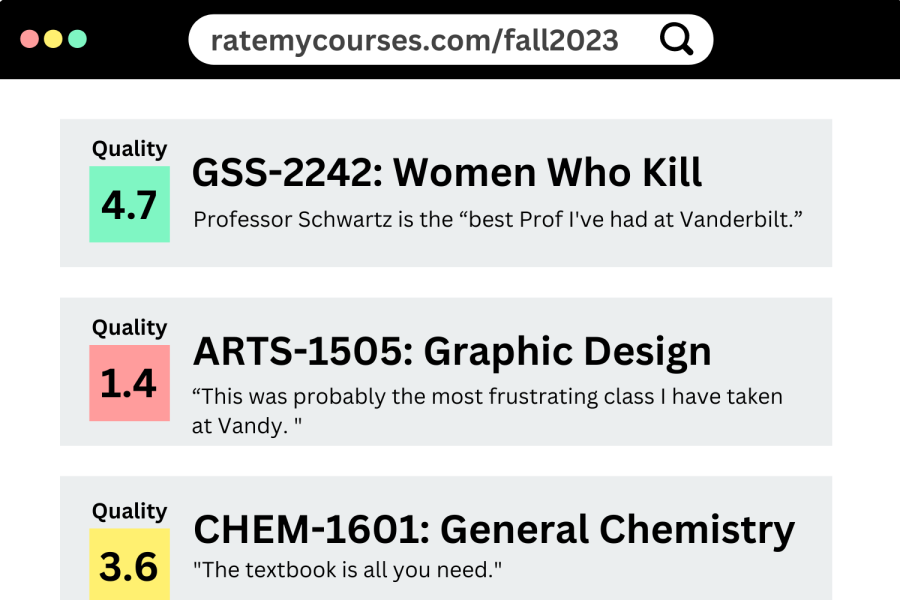The 2023 U.S. News & World Report Best Graduate Schools rankings placed five Vanderbilt graduate and professional schools in the top 25 of their categories. Released on March 29, these rankings mirror those released in 2022.
While the Peabody Graduate School of Education remained at No. 5 in the nation’s schools of education and the School of Medicine (VUSM) at 13, the School of Nursing (VUSN) saw its master’s adult-gerontology acute care nurse practitioner program ranked No. 1. Vanderbilt University Law School (VULS) rose to No. 17, and growth in the School of Engineering saw multiple top 50 rankings, with civil engineering at No. 40 and environmental engineering at No. 45.
“Graduate education is a critical focal point for Vanderbilt as we strive to recruit, support and empower exceptional scholars and future leaders,” Chancellor Daniel Diermeier said in a March 29 press release. “The latest rankings from U.S. News represent our commitment to this goal as we work together as One Vanderbilt to build upon our many proven and existing strengths in this area.”
Provost and Vice Chancellor for Academic Affairs C. Cybele Raver was also proud of Vanderbilt’s showing on the graduate program rankings.
“Excellence in graduate education is a vital part of Vanderbilt’s mission and is key to my leadership priorities,” Raver said in a March 29 press release. “Through a stellar array of masters and doctoral programs, we train the next generation of graduate students as leaders in interdisciplinary research, discovery, innovation and service. I commend the many students, faculty and deans who are so deeply dedicated to this shared endeavor.”
The College of Arts and Science’s graduate program in psychological sciences ranked No. 12 in its subject.
The full-time MBA program at the Owen School of Management ranked at No. 25 in the list of accredited Master of Business Administration programs, two places lower from its No. 23 ranking last year. It is also ranked No. 21 on the list of students employed at graduation.
Several programs in the graduate School of Engineering also rose in ranks. The master’s program in civil engineering lists at No. 43, materials engineering at No. 60 and environmental engineering at No. 45 in their respective specialties.
VUSM maintained its No. 13 ranking on the list of best research institutions. While VUSM shared the spot with the University of Pittsburgh last year, it now solely holds the ranking, with Pitt dropping to No. 14.
“[It’s a place of privilege to be at a No. 13 medical school,” first-year medical student Sweeya Raj said. “It just goes to show that the tremendous work that the faculty put into the school is being recognized.”
In addition, four of VUSM’s specialty programs placed within the top 20 of their respective categories: the internal medicine program ranked 10, the anesthesiology program ranked 12 and the surgery program ranked 18.
VULS ranked 17 in the nation’s best law schools, falling one place from last year. It is tied with the University of Texas-Austin Law School and Boston University School of Law at this spot.
VULS’s environmental law program ranked No. 7 in its specialty, while the school’s business/corporate law program ranked at 12 in the “Best Business Law Program” category and criminal law program ranked at 14 the “Best Criminal Law Program.”
VUSN’s master’s of science in nursing program maintained its No. 8 ranking in the nation’s master’s of nursing programs for the second year in a row. Further, its master’s program for adult/gerontology and acute care ranked No.1 in the nation for its category. Dr. Mavis Schorn, senior associate dean for academics, said these rankings reflect the effort put forth by faculty and staff.
“It is hard to express the pride in seeing the adult-geriatrics acute care nurse practitioner join nurse-midwifery (only ranked every 3 years) as a #1 ranked program in the country,” Schorn said in a message to The Hustler. “These rankings make faculty and staff feel like that we are doing something right—that the hard work pays off for the students.”
Schorn further stated the vision for the school’s growth in academics, research and inclusion efforts.
“With the plan to continue to grow the research mission, an intense focus on innovation and new strategies to continue enhancing equity, diversity, and inclusion—I fully expect the school to not just maintain these high rankings but perhaps move up into the top 5 for the overall degree programs. With that said, we would be focusing on these items even if there were no rankings,” Schorn said. “The more students feel like they belong, the more they will thrive…which is what we want to see no matter how the programs are ranked.”
Peabody College holds a No. 5 ranking in graduate education programs, as it did last year. The school’s special education master’s program ranked No. 1 in its specialty, as did its master’s program in educational administration and supervision. Peabody’s master’s programs in policy, education psychology and elementary education remain within the top five spots on their respective lists, coming in at No. 2, 3 and 4, respectively. The master’s programs in secondary education and higher education administration are ranked in the top 10 in their respective categories, both at No. 8.
“I wasn’t too surprised by the ranking because Peabody has been pretty high for many years now,” Peabody second-year master’s student Emily O’Brian said. “It’s really reflective of the education at Peabody because of the way that the professors and the cohort model really support students in their graduate work, and there’s so many opportunities to be on the ground and learn what your specialty is.”













